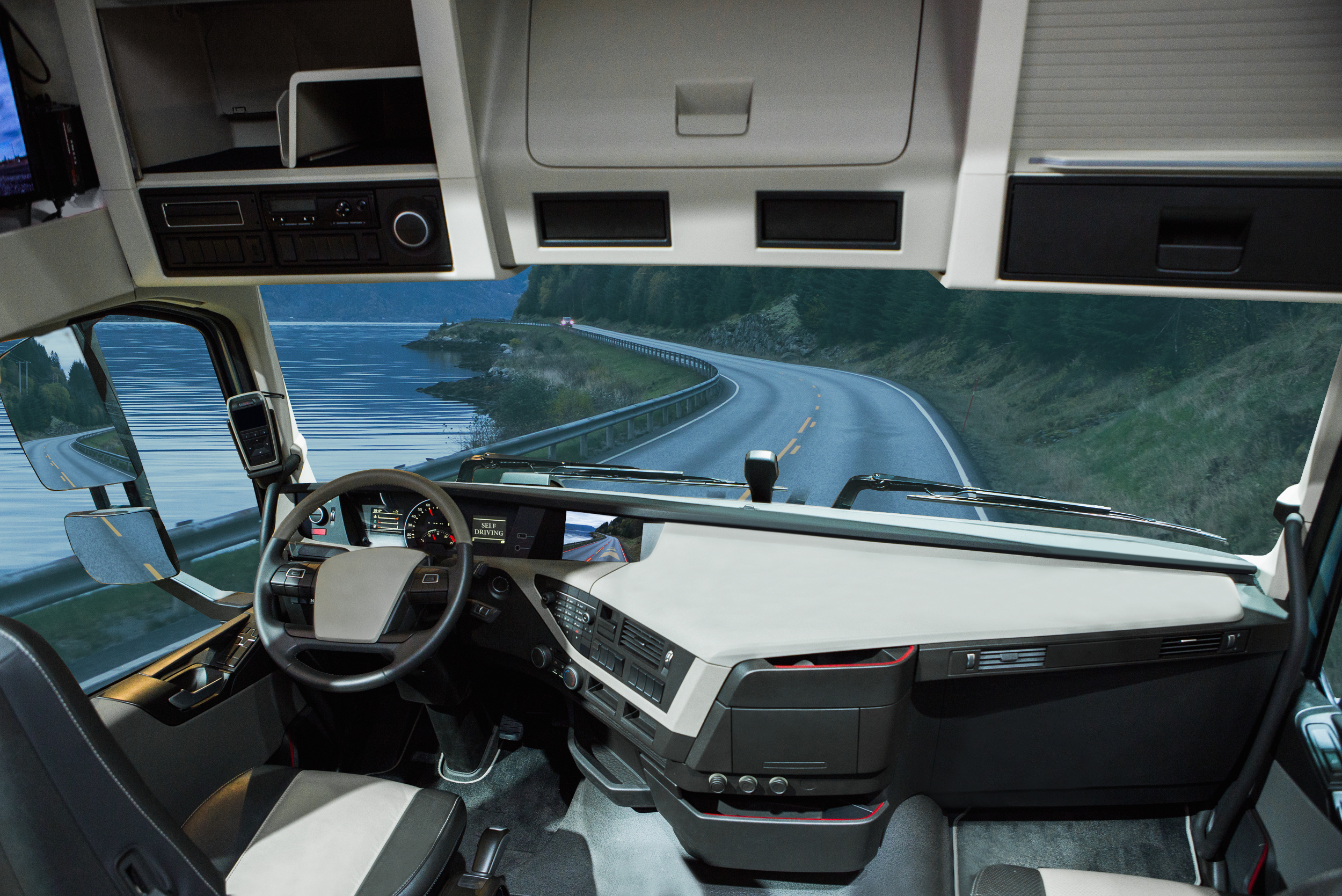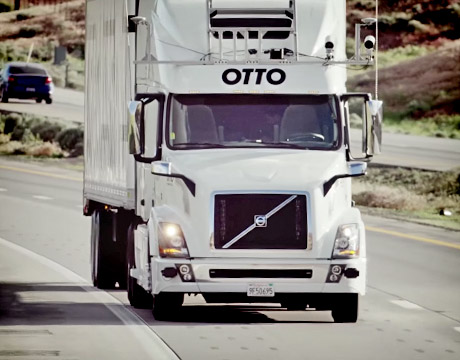The race is on among tech companies to be the first to perfect and roll out fully autonomous trucks. In 2016, Uber premiered the Otto - the first autonomous truck to complete a commercial shipment without a driver - it delivered beer after a 120 mile trek through Colorado. (We wrote an article on that at the time, for an Otto refresher you can find that here: Uber's Otto Delivers on Driverless Tech)
ESG & Industry Updates
Topics: Oil & Energy Magazine, autonomous vehicles
Are Self Driving Trucks a Solution to Driver Shortages?
Posted by Ed Burke on May 25, 2018 11:46:00 AM
Are self driving trucks the long term solution to the driver shortage? Or will autonomous vehicles simply change the way drivers do their work every day?
Topics: autonomous vehicles, driver shortage
Subscribe to Email Updates
Recent Posts
Posts by Topic
- Carbon Emissions (42)
- Climate Change (33)
- renewable energy (32)
- Oil & Energy Magazine (27)
- EPA (24)
- Massachusetts (22)
- Biden Administration (18)
- decarbonization (15)
- Biodiesel (12)
- natural gas (12)
- EPA Mandate (11)
- RFS (11)
- Solar (11)
- Biofuels (10)
- Keystone XL (10)
- methane (10)
- Clean Energy (9)
- offshore wind (9)
- Energy Independence (8)
- Energy Infrastructure (8)
- Safety (8)
- Biodiesel Tax Credit (7)
- Emissions (7)
- Ethanol (7)
- Trump Administration (7)
- ev (7)
- Cellulosic Ethanol (6)
- EV Charger (6)
- Inflation Reduction Act (6)
- RINs (6)
- environmental justice (6)
- Fracking (5)
- Technology (5)
- US Crude Exports (5)
- Utility Rates (5)
- electric vehicles (5)
- maine (5)
- tesla (5)
- ACT (4)
- Mass DOER (4)
- TransCanada (4)
- battery (4)
- fuel management (4)
- massachusetts biodiesel mandate (4)
- obama (4)
- paris accord (4)
- remote tank monitoring (4)
- CARB (3)
- CRUDE (3)
- Carbon Capture (3)
- Clean Fuel Production Credit (3)
- E85 (3)
- Emergency Fuel (3)
- Massachusetts Clean Cities (3)
- Waste Feedstock Biodiesel (3)
- china (3)
- clean power plan (3)
- electricity rates (3)
- net-zero (3)
- renewable diesel (3)
- solid state battery (3)
- AI (2)
- AVs (2)
- Bioheat (2)
- Commodities (2)
- Congress (2)
- Customer Service (2)
- DOT (2)
- EIA (2)
- Emergency Generator Program (2)
- HFCs (2)
- Hurricane Sandy (2)
- IMO 2020 (2)
- MIT (2)
- Marinas (2)
- New York (2)
- Refinery Closures (2)
- Safe Driving Policy (2)
- TCI (2)
- US Energy Boom (2)
- ZEV (2)
- autonomous vehicles (2)
- clean air act (2)
- clean heat standard (2)
- coal (2)
- driver shortage (2)
- emergency response (2)
- environment (2)
- ferc (2)
- geothermal (2)
- hydro-electric (2)
- hydrogen (2)
- national grid (2)
- net metering (2)
- power plant emissions (2)
- power plants (2)
- railcar regulations (2)
- tariff (2)
- vineyard wind (2)
- API (1)
- Air conditioning (1)
- Baiji Refinery (1)
- Blend Wall (1)
- Brent Crude (1)
- Brent vs WTI (1)
- CFCs (1)
- Cell Phone Policy (1)
- Clean Water Act (1)
- DEF (1)
- Election Results (1)
- Electrical Grid (1)
- Energy Efficiency (1)
- Environmental Impact Study (1)
- Environmentally Friendly Products (1)
- Ethanol Tax Credit (1)
- FEMA (1)
- Fiscal Cliff (1)
- Gas Tax (1)
- Gasoline Supply Crunch (1)
- HDVC (1)
- Hazmat (1)
- Heat Tax (1)
- Highway Trust Fund (1)
- Holyoke (1)
- Hybrid (1)
- ISIS (1)
- Iraq (1)
- Kigali Amendment (1)
- MOC (1)
- Market analysis (1)
- Mayflower (1)
- Montreal Protocol (1)
- NORA (1)
- Natural Gas Pipeline Explosion (1)
- New Jersey (1)
- OBB (1)
- Oil Barrel Tax (1)
- PFC (1)
- Pegasus Pipeline (1)
- Propane Autogas (1)
- Stimulus (1)
- Syria (1)
- Tank Truck Safety Training (1)
- Tax Increases (1)
- Tier 3 Gasoline Standard (1)
- Times Square (1)
- VEEP (1)
- Workplace Risk (1)
- agriculture (1)
- algonquin pipeline (1)
- alternative energy (1)
- altwheels (1)
- astm (1)
- bionic leaf (1)
- bitcoin (1)
- boston (1)
- covid-19 (1)
- energy storage (1)
- eversource (1)
- export ban (1)
- fixed pricing (1)
- fuel (1)
- fuel efficiency (1)
- fuel marketers news (1)
- gas leaks (1)
- heating oil (1)
- hurricane harvey (1)
- inflation (1)
- irving oil (1)
- marketing (1)
- nuclear (1)
- online fuel buying (1)
- ozone (1)
- photovoltaic (1)
- pilot program (1)
- pipeline (1)
- propane (1)
- renewable natural gas (1)
- rggi (1)
- russia (1)
- sanctions (1)
- senate (1)
- shale (1)
- social media (1)
- social media for business (1)
- space (1)
- tablets (1)
- tennessee pipeline (1)
- ukraine, (1)
- value added services (1)


